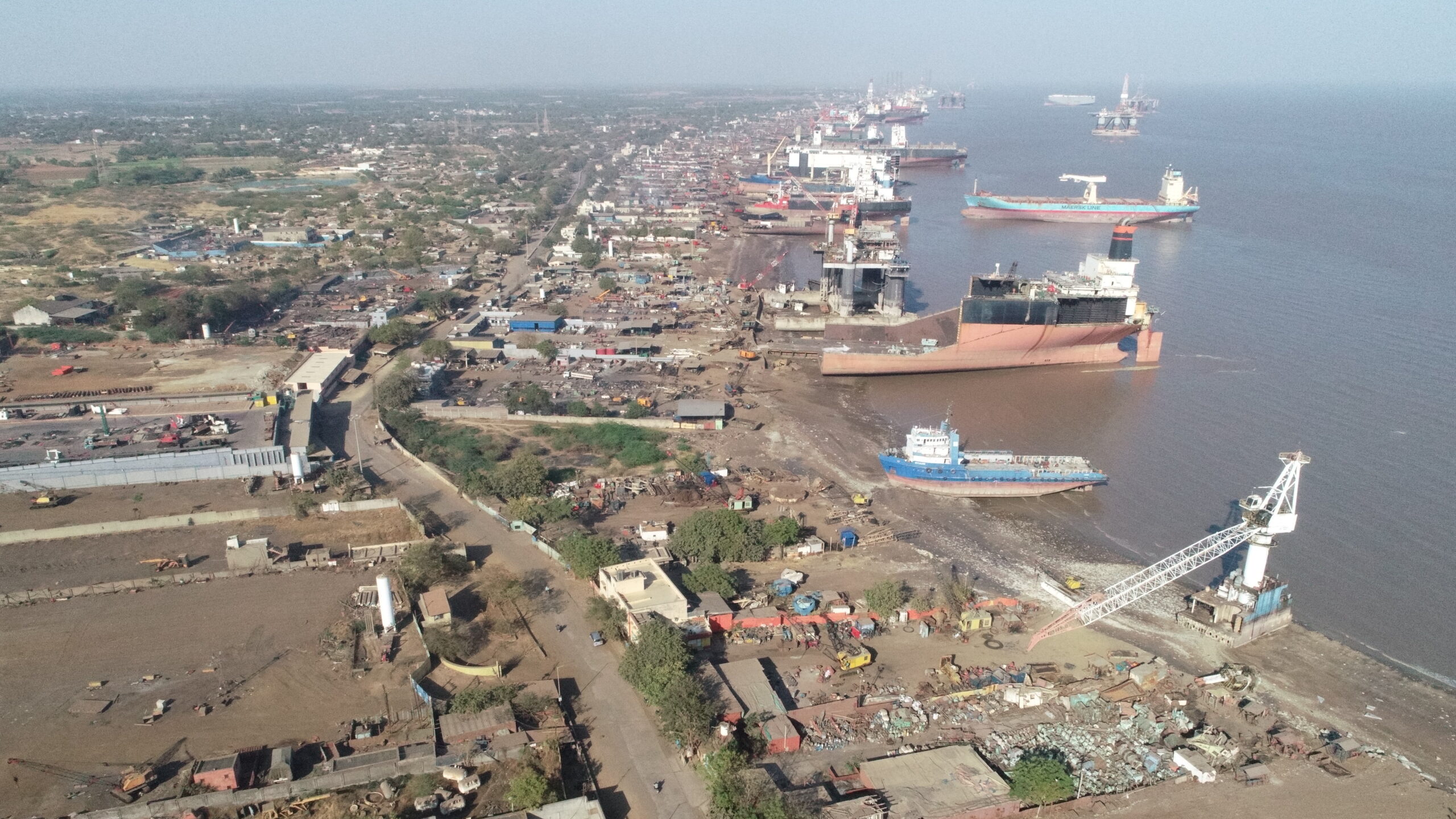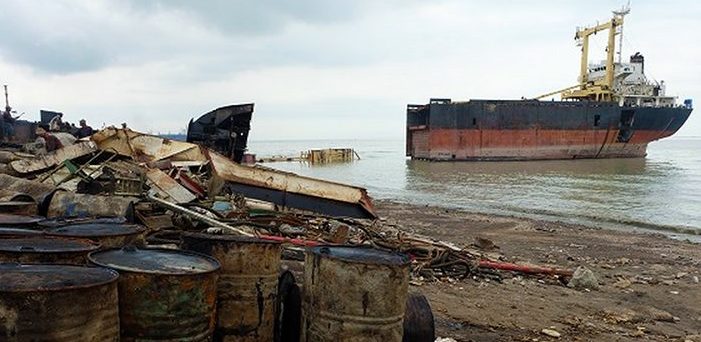New Project Aims to Promote Safe and Sustainable Ship Recycling in Pakistan

In an important step towards promoting safer and more environmentally responsible practices in the global ship recycling industry, a new initiative has been launched in Pakistan, one of the world’s top five ship recycling nations. The “Safe and Environmentally Sound Recycling of Ships and Decent Work” (SENSREC-DW) Project held its inaugural workshop in Karachi on September 16. The event marked a significant milestone, following the official visit of International Maritime Organization (IMO) Secretary-General Arsenio Dominguez to the country.
This new project represents a collaborative effort between the IMO and the International Labour Organization (ILO). The overarching aim is to enhance safety protocols, and environmental responsibility, and ensure that global labour standards are met within Pakistan’s shipbreaking sector. In particular, the initiative seeks to address key challenges in the industry, including improving working conditions for labourers and minimizing the environmental impacts of ship dismantling, which often pose severe risks to both people and the planet.
The Workshop: A Multi-Stakeholder Effort
The Karachi workshop brought together approximately 150 individuals, representing various stakeholders from government bodies, industry leaders, and labour organizations. Among the attendees were officials from Pakistan’s Ministry of Maritime Affairs, the Ministry of Climate Change, and the Baluchistan Development Agency, reflecting the multifaceted nature of the issue.
Industry representatives also played a vital role in the discussions, as did labour organizations, whose members are often on the front lines of ship recycling activities. The diverse mix of participants underscored the importance of a collaborative approach to address the various dimensions of ship recycling, particularly in developing nations like Pakistan.
A key focus of the workshop was ensuring that Pakistan’s ship recycling sector aligns with international safety, labor, and environmental standards. Specifically, discussions revolved around compliance with the Hong Kong International Convention for the Safe and Environmentally Sound Recycling of Ships, the Basel Convention on the Control of Transboundary Movements of Hazardous Wastes and their Disposal, and various ILO treaties designed to protect workers’ rights and ensure decent working conditions.
Ship Recycling in Pakistan: High-Risk Yet Critical
Ship recycling, also known as shipbreaking, involves the dismantling of decommissioned ships for the reuse of steel and other materials. While the industry plays a critical role in the circular economy, offering valuable materials for reuse, it comes with significant risks. Workers often face hazardous conditions, and the environmental impacts can be devastating if not managed properly. Improper disposal of hazardous materials such as asbestos, oil residues, and heavy metals can result in pollution of surrounding environments, affecting both ecosystems and communities.
In Pakistan, ship recycling is primarily centred in Gadani, a coastal area in the Baluchistan province. Gadani is home to one of the largest shipbreaking yards in the world, but it has also been a site of numerous accidents, including a tragic fire in 2016 that resulted in the deaths of 26 workers. Such incidents have highlighted the urgent need for stronger safety regulations and better enforcement of existing standards.
The SENSREC-DW project seeks to address these concerns by promoting best practices in the ship recycling industry, particularly in terms of worker safety and environmental sustainability. By working with both government agencies and industry stakeholders, the project aims to improve conditions at shipbreaking yards while ensuring that Pakistan remains a competitive player in the global market.
Aligning with Global Standards
One of the key challenges discussed at the workshop was how to align Pakistan’s ship recycling industry with international standards, particularly those outlined in the Hong Kong Convention. Adopted by the IMO in 2009, the Hong Kong Convention sets out guidelines for the safe and environmentally sound recycling of ships, to protect both human health and the environment. However, the convention has yet to be fully ratified by enough countries to enter into force, making voluntary compliance and capacity-building projects like SENSREC-DW all the more crucial.
In addition to the Hong Kong Convention, Pakistan must also consider its obligations under the Basel Convention, which governs the transboundary movement of hazardous wastes, and various ILO treaties that set standards for labour rights. Ship recycling is an inherently international industry, with ships often being sold for dismantling in countries far from their original owners. This makes it essential for countries like Pakistan to adhere to global agreements to ensure they remain part of the international ship recycling ecosystem.
Capacity Building and Training
A major theme of the workshop was the need for capacity-building and training programs tailored to the specific needs of Pakistan’s ship recycling sector. Participants emphasized the importance of educating both workers and industry leaders on best practices for safety and environmental responsibility. By building local capacity, the SENSREC-DW project aims to create a more sustainable ship recycling industry that can operate by international standards without sacrificing worker safety or environmental health.
Training programs will likely focus on a range of issues, including proper handling and disposal of hazardous materials, fire safety, and the use of personal protective equipment (PPE). Additionally, there will be efforts to raise awareness among workers about their rights under national and international labour laws, ensuring that they are empowered to demand safer working conditions.
A Field Visit to Gadani: Learning from the Ground
As part of the workshop, participants took part in a technical visit to the ship recycling yards in Gadani, Baluchistan. This visit provided an opportunity for stakeholders to observe firsthand some of the key challenges faced by the industry, including inadequate safety measures, poor working conditions, and environmental hazards. By seeing these issues up close, participants were better able to understand the urgent need for reforms and the importance of projects like SENSREC-DW in driving change.
The visit also allowed participants to engage directly with workers, gaining insights into their experiences and concerns. For many labourers, shipbreaking is a vital source of income, but the lack of safety protocols and proper equipment often puts their lives at risk. The hope is that by addressing these issues through training, regulatory reform, and better enforcement of existing laws, Pakistan’s ship recycling industry can become a model of sustainability and worker protection.
The Road Ahead
The launch of the SENSREC-DW project marks an important step forward for Pakistan’s ship recycling industry. By promoting safety, environmental responsibility, and labour rights, the initiative has the potential to transform the sector, making it both more sustainable and more humane.
However, the road ahead is not without challenges. Ensuring compliance with international standards, building local capacity, and improving working conditions will require sustained effort from all stakeholders involved. But with the support of the IMO, ILO, and Pakistani government, the project offers hope for a safer and more sustainable future for ship recycling in Pakistan.
Author: shipping inbox
shipping and maritime related web portal








